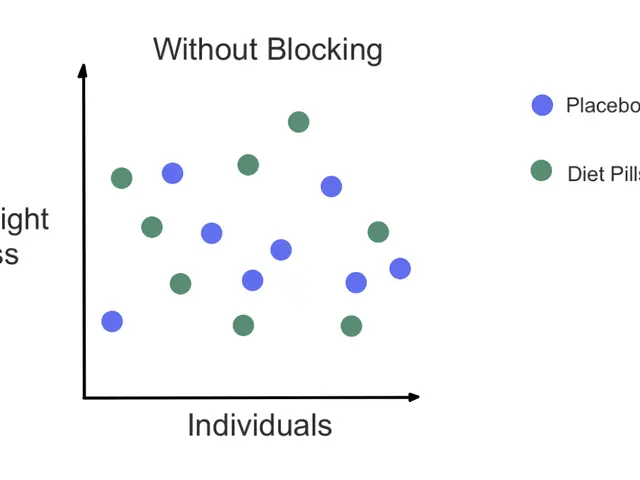Young adults in Generation Z find joy in handling financial responsibilities such as rent and grocery shopping: "They've hit an unalterable economic milestone"
In a world where the dream of owning a home and cooking dinner in a small apartment is seen as a significant achievement, a viral tweet has sparked a conversation about the economic struggles faced by Generation Z. The post, featuring an image of a basket of groceries, including whole foods like spinach, tinned tomatoes, and an avocado, has resonated deeply with many young people who feel the weight of economic pressures.
The economic challenges facing Generation Z are numerous and far-reaching. High living costs, substantial personal debt, and financial insecurity are among the main issues that this generation grapples with. Over half of Gen Z report that the high cost of living is a major barrier, with everyday expenses such as groceries, rent, and utilities being more expensive than expected. Rent alone now consumes about 40% of their income, compared to 25% historically[1][2].
Gen Z carries an average personal debt of about $94,101, significantly higher than previous generations. Over a third of older Gen Zers have student debt, which contributes heavily to their financial burden[1]. More than half feel they do not earn enough to live the life they want, and many struggle to save consistently, with 55% lacking emergency savings to cover three months of expenses[2].
The job market uncertainties and evolving career paths also pose significant challenges. Gen Z faces eroding career prospects due to automation, AI, and economic instability. Many perceive college degrees as less valuable and are shifting toward gig work and new models of earning that emphasize independence but also instability. This contrasts with older generations’ more predictable career trajectories[3][4].
The financial stress is widespread among Gen Z, with 33% feeling stressed about their finances, often linked to economic instability. This contributes to mental health challenges more prevalent in this generation[2][5].
The conversation was ignited by a candid post on Reddit, where users shared their own experiences of the financial challenges they face. For many, the post reveals that affording rent and groceries now feels like a goal, rather than a given. To some, the idea of romanticising basic essentials might seem absurd or dystopian, but for Generation Z, it's simply their reality.
The original tweet was seen as a symbol of personal growth and independence by some, but for many, it highlights the financial challenges that this generation faces. The article is available for reading here, and the comment resonated deeply, drawing in others who echoed the sentiment of uneasy recognition.
The conversation is also related to a discussion about a generational workplace debate and the Gen Z stare, as well as the financial challenge of singlehood, an issue that doesn't often get airtime. As the economic landscape continues to evolve, it's clear that Generation Z is redefining what success looks like to include managing to get by. Home ownership is increasingly out of reach for this generation, and for many, the post serves as a reminder of the significant economic pressures they face.
[1] https://www.pewresearch.org/fact-tank/2020/06/18/5-facts-about-the-debt-burden-faced-by-young-americans/ [2] https://www.cnbc.com/2021/04/09/millennials-and-gen-z-are-struggling-financially-and-its-affecting-their-mental-health.html [3] https://www.forbes.com/sites/katewilliams/2020/05/08/the-real-reason-millennials-are-struggling-to-get-ahead-isnt-what-you-think/?sh=643e33f4753c [4] https://www.brookings.edu/research/the-future-of-work-for-young-americans-a-generational-shift-in-earnings-and-employment/ [5] https://www.apa.org/topics/mental-health/millennials-mental-health
Read also:
- A Business Model Explained: Its Purpose and Benefits for Your Venture
- High-Priced 2026 Corvette ZR1X Emerges as Budget Option in Supercar Sphere
- Top racer claims Corvette ZR1 might have shaved an additional 10 seconds off its record-setting lap time at Nurburgring
- Determining the Fate of Underground Water Reserves




